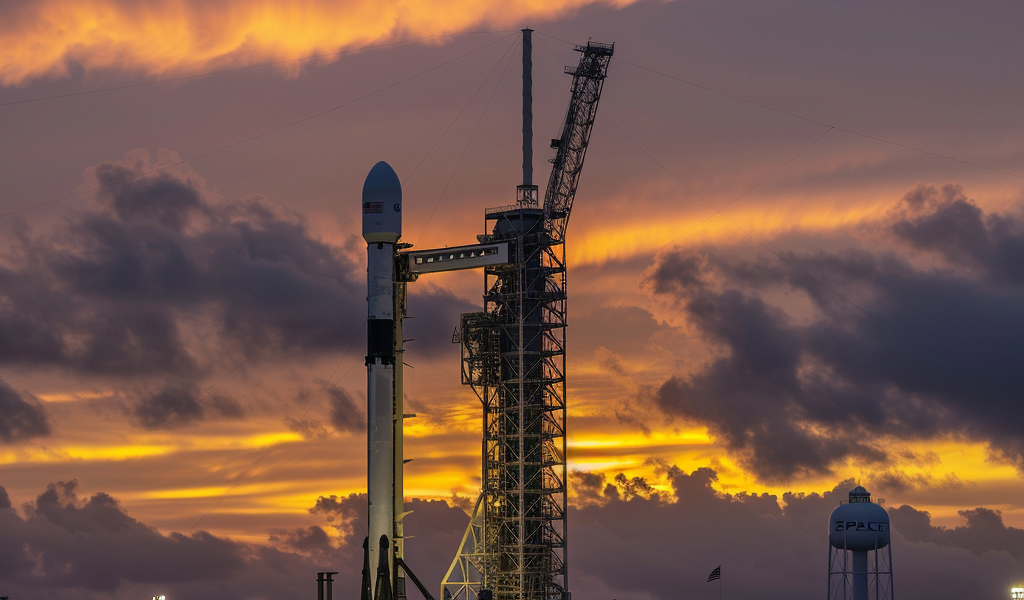On August 3, 2024, the planned launch of the Northrop Grumman Cygnus spacecraft to the International Space Station (ISS) was postponed due to unfavorable weather conditions. Originally set for July 30, 2024, the mission aimed to deliver over 8,200 pounds of scientific equipment, supplies, and research materials to the ISS. The launch was scheduled to take place from Space Launch Complex 40 at Cape Canaveral Space Force Station in Florida.
The Cygnus spacecraft, encapsulated within a SpaceX Falcon 9 payload fairing, was poised for its 21st commercial resupply mission under NASA’s contract with Northrop Grumman. However, as the launch window approached, meteorological forecasts indicated a significant likelihood of poor weather, leading to the decision to scrub the launch.
As of the latest updates, the next launch attempt has been rescheduled for no earlier than August 4, 2024, at 11:02 a.m. EDT (1502 UTC). The mission is expected to embark on a two-day journey to the ISS once it successfully lifts off.
The launch was complicated by the presence of Tropical Cyclone Four, which was forecasted to impact the Florida Keys on the same day as the original launch attempt. The 45th Weather Squadron had assessed the conditions, indicating only a 50 percent chance of favorable weather for the Saturday launch. Melody Lovin, a launch weather officer, noted that while the area was not directly in the path of the cyclone, the effects of the storm could still pose risks for the launch.
SpaceX’s Falcon 9 rocket has been a reliable workhorse for various missions, including the deployment of satellites and cargo resupply missions to the ISS. This particular mission marks the second of three planned launches of the Cygnus spacecraft using the Falcon 9, as Northrop Grumman collaborates with Firefly Aerospace to develop the new Antares 330 rocket, which is slated for its inaugural flight in 2025.
As preparations continue for the rescheduled launch, Spaceflight Now is expected to provide live coverage approximately 1.5 hours prior to liftoff. Enthusiasts and followers of space exploration will be keeping a close eye on the weather conditions as the new launch date approaches.
In addition to the Cygnus mission, SpaceX has also been active with other launches recently. Just prior to the scrubbed Cygnus launch, SpaceX successfully deployed 23 Starlink satellites from the Kennedy Space Center, further expanding its satellite internet constellation.
Furthermore, United Launch Alliance (ULA) celebrated a significant milestone with the launch of its Atlas V rocket, marking the company’s 100th national security mission. This highlights the growing importance of space missions related to national security, as well as the increasing reliance on private aerospace companies to support these endeavors.
As the space industry continues to evolve, the collaboration between private companies and government agencies remains crucial for advancing scientific research and exploration. The upcoming rescheduled launch of the Cygnus spacecraft will be a key moment in this ongoing partnership, as it delivers essential supplies and research capabilities to astronauts aboard the ISS.
The anticipation surrounding the launch is palpable, as stakeholders and space enthusiasts alike await confirmation of the weather conditions that will determine the success of this mission. The Cygnus spacecraft’s journey to the ISS is not just a logistical operation; it is a vital component of the ongoing efforts to conduct research in microgravity, which has profound implications for science and technology on Earth.
As we look forward to the new launch date, the focus remains on ensuring the safety and success of the mission, while also navigating the challenges posed by unpredictable weather patterns. The resilience of the space industry in the face of such challenges underscores its commitment to exploring the final frontier.





